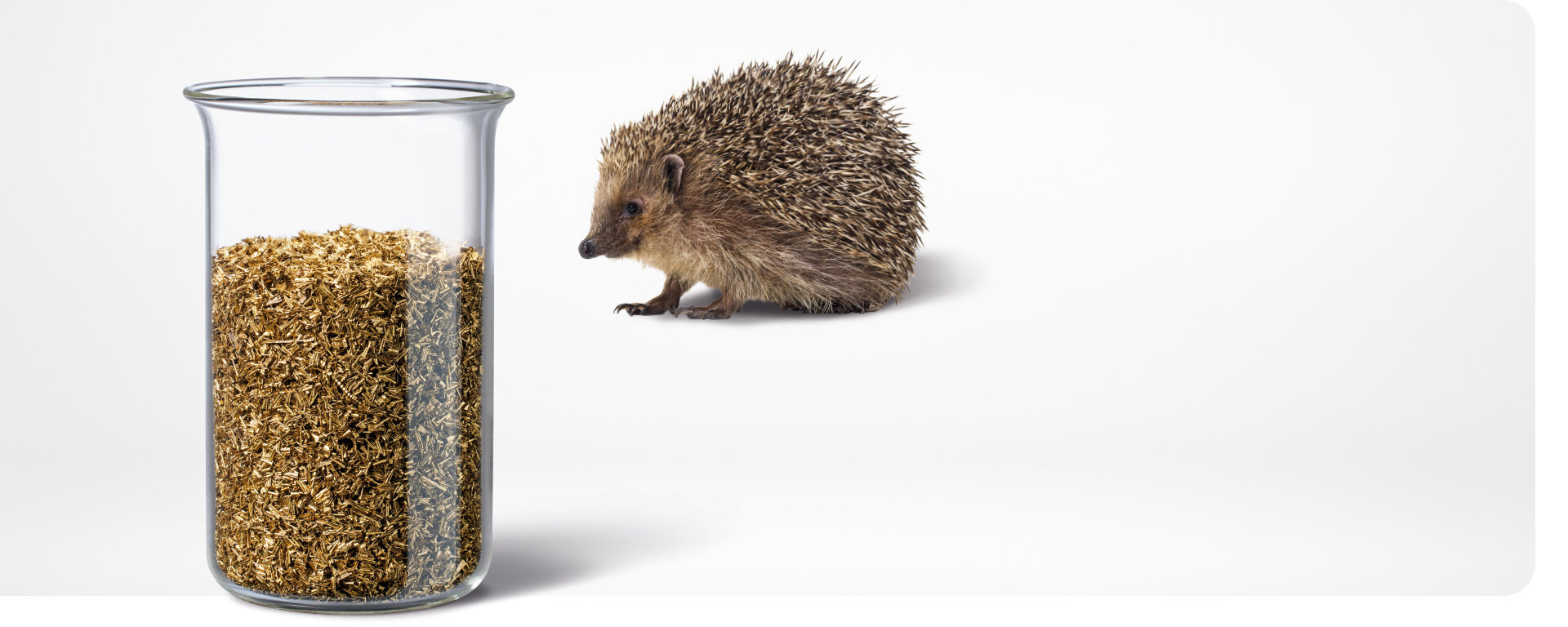Search
REMONDIS’ business locations around the world
Being one of the world’s leading recycling, service and water companies, REMONDIS has around 1,000 business locations across the globe. These can be found in over 30 countries in Europe, Africa, Asia and Australia.
REMONDIS’ business locations in Germany
REMONDIS’ business activities in Germany are managed and carried out by its six regional companies. REMONDIS also has a whole variety of specialist companies, many of which are based here in Germany as well.
The advantages of recycled raw materials – sustainable in every way possible

A number of answers are possible when asked what the concrete advantages of recycled raw materials actually are. Each one of these answers is in itself indisputable and each one is more than enough reason to prioritise the recovery and processing of recyclable materials. It will be impossible to achieve the Green Deal and the plans connected to it – i.e. to make Europe the first ever net zero continent by 2050 – unless recycled raw materials are used systematically.
More than just one plus point
What stands out is that recycled raw materials offer advantages across all areas of sustainability. They not only create environmental and economic benefits, therefore, but socio-ethical ones as well. Especially when the subject of recycled raw materials is considered on a large scale and from a global perspective.
The advantages of recycled raw materials – in a nutshell
They protect the environment
Extracting virgin raw materials from the ground inevitably leads to land consumption – as well as to irreparable damage to the environment. This problem simply does not exist with recycled raw materials. The fact that they are considerably more cost effective further underlines this advantage. Recovering copper from e-waste requires 25 times less material than producing new copper from ore.
They curb climate change
Producing virgin raw materials is an incredibly energy-intensive process – one, therefore, that also creates high levels of carbon emissions. This can, in part, be put down to the fact that the production processes often require large quantities of fossil fuels. Just one example: the production of virgin plastics alone consumes eight percent of all the crude oil extracted from the ground each year. Recycled raw materials provide a solution that involves far fewer emissions, conserves natural resources and is much better for the environment.
They promote social responsibility
In many regions around the world, virgin raw materials are mined under precarious conditions. This not only has a devastating impact on the environment but on the people who live and work there as well. And the ones that suffer the most here are often the weakest in society. An industrial business that increases the amount of recycled raw materials it uses in its products is also taking a stand against exploitation and child labour.
They reduce dependency on imports
Many raw materials come from unstable countries. Such conditions may create volatile situations which can lead to both supply bottlenecks for manufacturers and higher prices. Risks that can be reduced by using more recycled raw materials.
They safeguard industrial locations in Europe
A further advantage of recycled raw materials, which is related to the above points, is that German and European production locations remain competitive. This, in turn, safeguards jobs. What’s more: scaling up the recycling sector even generates new job opportunities. According to a study published by SYSTEMIQ on the impact of the Paris Climate Agreement six million new jobs could by created globally in the circular economy alone by 2030.
A look at the big picture.
Why there’s no avoiding recycled raw materials
Irrespective of the concrete benefits that recycled raw materials already offer today, there will be no alternative but to use them looking ahead into the future. This picture becomes even clearer when you take a look at how industrial nations are currently consuming raw materials. If all of the countries around the world were to consume raw materials at the same rate as Germany does, then almost two planet Earths would be needed to secure the supplies required. Now add to this equation that the global population is growing exponentially and that global per-capita consumption of raw materials is continuously increasing, then there really can be only one conclusion: we are currently heading down a blind alley. Sooner or later, we will have used up our natural resources.
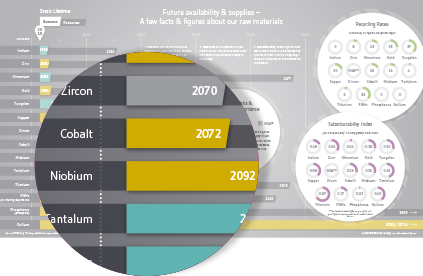
Annual per-capita consumption of raw materials
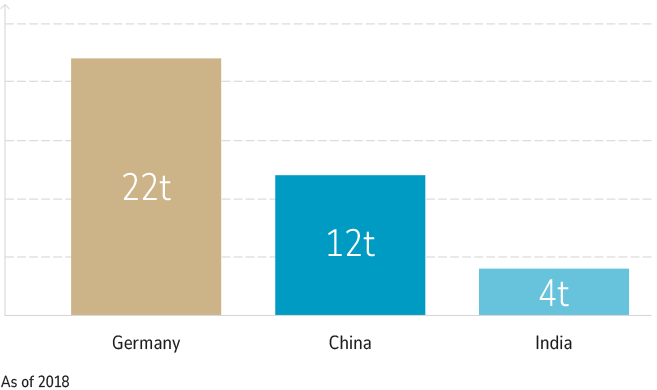
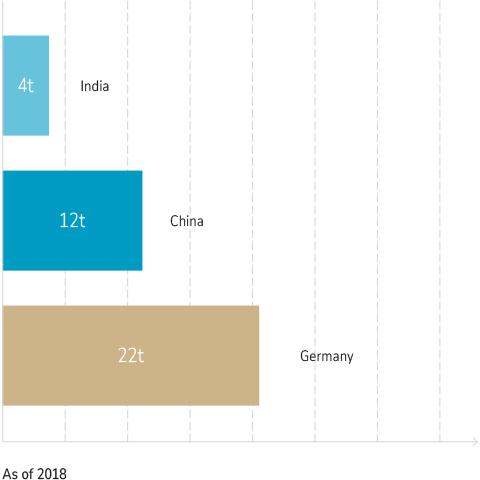
At the moment, per-capita consumption in India and China is still far below the levels in the prosperous nations of the West. This will inevitably change as the economies of these two countries grow. Two countries that, together, are home to around 2.6 billion people!
An ever-growing number of people are consuming an ever-growing amount of natural resources. Recycled raw materials are the only way to sustainably safeguard global growth.
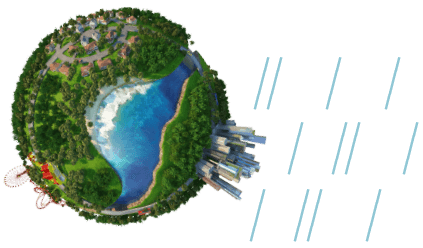
Another important advantage of recycled raw materials: their quality
If there is one thing that recycled raw materials don’t have, it is a problem with their quality. Which is why the term ‘recycled raw material’ is far more appropriate than the outdated expression ‘secondary raw material’. The production of recycled raw materials is regulated by stringent criteria that are far stricter than the environmental standards – and in many cases the quality standards – imposed on virgin raw materials. These are not ‘second-best’ or lesser products but high quality raw materials that, in some cases, can be recovered in the same quality and be reused again and again. This is especially true for metals such as iron, aluminium and copper.
Materials affected by so-called downcycling also meet the highest requirements no matter what they are used for during the different stages of their life cycle. This is guaranteed as the recycling sector is able to assess the quality of the incoming materials and produce bespoke recycled raw materials using formulas that meet its customers’ specific industrial applications. This is referred to as cascade use. It is, for example, no problem to recycle plastic several times and to use it to make different products each time. To begin with, it is a high quality children’s toy and then, later on, versatile plastic film. The same is true for old paper. Paper has a number of life cycles – from being a glossy catalogue, to becoming a newspaper, to being used to make kitchen roll.
As far as production processes are concerned, it makes absolutely no difference whether a raw material is used for the first time or whether it has been recovered for reuse
